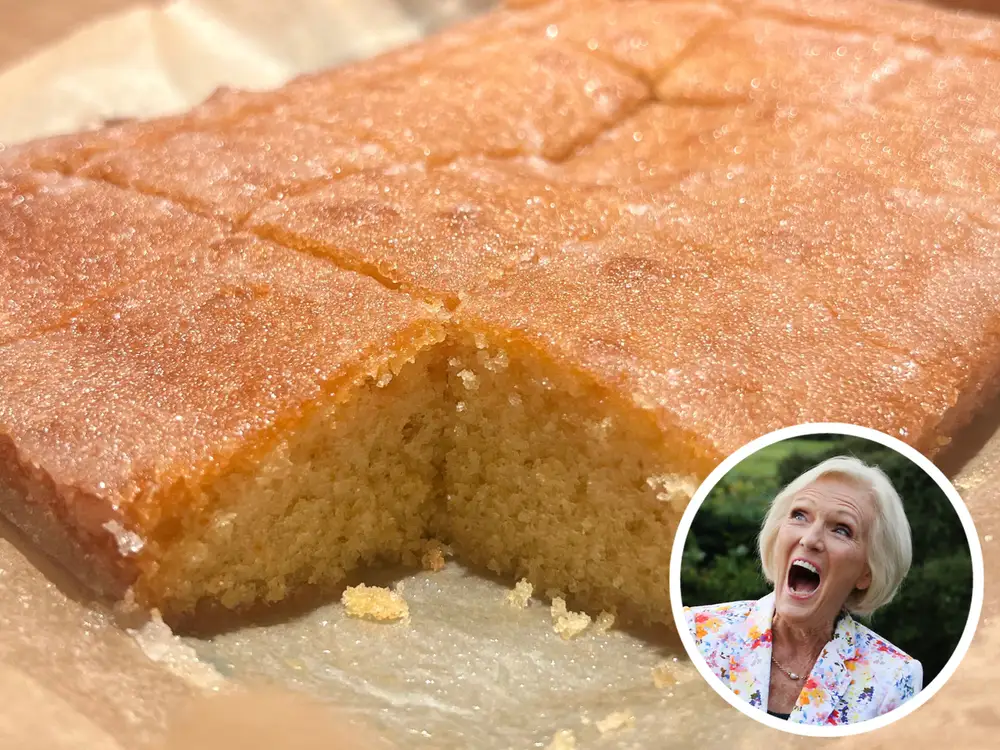Berry, 88, is an iconic British baker, food journalist, and former host of “The Great British Baking Show.”
Over the years, she’s published more than 20 books containing her go-to recipes and expert insights into how to master the art of baking sweet treats.
Showcasing the recipe in episode three of “Mary Berry Absolute Favourites: Episode 3,” Berry opened up about the backstory of her favorite lemon drizzle tray bake cake, revealing that she picked it up from the mother of one of her friends in the 1960s.
“She said, ‘You girls don’t do enough baking,’ and she stood in the kitchen with the little prams all around and the children, and made the cake for us and it’s been my favorite ever since,” Berry said, cheekily adding that she’s made more lemon drizzle tray bakes than most people have had “hot dinners.”
According to the BBC, the recipe is also the one Berry gets asked about the most whenever she’s stopped on the street.
To make the tray bake batter, you’ll need:
- 225 grams of butter, plus extra for greasing your tin
- 225 grams of caster sugar
- 275 grams of self-raising flour
- 2 teaspoons of baking powder
- 4 eggs
- 4 tablespoons of milk
- The zest of two un-waxed lemons.
An optional addition to the batter is finely chopped lemon verbena, a leafy plant that has the same zesty aroma as lemons. I couldn’t find it in my local shop so decided to skip it, as Berry said the recipe works just fine without it.
Besides the ingredients for the batter, you’ll also need to set aside the juice of two lemons and 175 grams of granulated sugar, used to create the crunchy glaze.
Before getting started on the cake mixture, I greased the dish with butter and lined it with baking parchment paper to make removing the cake from the dish seamless after baking.
